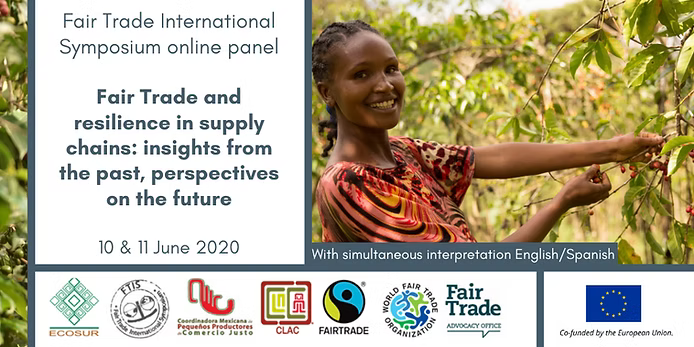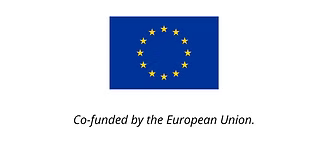Fair Trade and resilience in supply chains: insights from the past, perspectives on the future

Fair Trade movement actors are currently addressing the many short-term direct impacts of Covid-19 and the immediate challenges it is raising for Fair Trade Enterprises and supply chains, namely small farmers and workers. As governments, businesses and civil society call on for more resilience in supply chains, these unprecedented events also raise strategic questions about Fair Trade, its value, role and future.
In this context, the Fair Trade International (FTIS) Steering Committee decided to support an online event to provide a space to step back and reflect on the long-term impacts of the COVID-19 crisis on Fair Trade and resilience in supply chains.
The event consisted of four online panel discussions, which took place on 10 and 11 June 2020. The aim was to enable future cooperation between researchers and the Fair Trade movement to address challenges identified during the panel discussions.
OVERVIEW OF PANEL DISCUSSIONS
Day 1: 10 June 2020 (16:00-18:00 CEST, 9:00-11:00 GMT-5)
- Panel 1 (The Crisis in Context: Understanding Change) looked back. How did the economic crisis in Latin America during the early 1980s shaped how we currently think about fair trade? How have the concepts of Fair Trade and resilience been interpreted so far? To what extent has Fair Trade demonstrated success in increasing resilience? What are the lessons learned from “coping strategies” or its ability to adapt in the face or other difficult situations that Fair Trade initiatives have had to face?
Panelists included: Peter Van Dam (University of Amsterdam, Netherlands), Jessica Mullan (Committee on Sustainability Assessment, COSA), Jan Orbie (University of Ghent, Belgium), Miguel Ángel Munguía (Board Chair of the Latin American and Caribbean Network of Fair Trade Small Producers and Workers, Mexico). - Panel 2 (Emergency measures for resilience: Impact and recovery strategies) looked at the present. What is the impact of Covid-19 in women workers and smallholders in African horticulture and Asian garments supply chains? Are Fair Trade producers better protected to face crises like the on-going coronavirus crisis? How do Fair Trade actors behave compared to mainstream businesses (e.g. in how they support communities, suppliers, artisan groups, farmers, workers, etc.)? Are Fair Trade values a competitive disadvantage in times of crisis (e.g. less willing to cut costs)?
Panelists included: Hernan Manson (International Trade Centre), Stephanie Barrientos (University of Manchester, UK), Matthew Anderson (Portsmouth Business School, UK), Dario Soto Abril, Fairtrade International.
Day 2: 11 June (16:00-18:00 CEST, 9:00-11:00 GMT-5)
- Panel 3 (Public policies and future systems: Shaping new approaches and agendas) aimed at addressing questions such as how can Fair Trade better contribute to tackling some of the economic issues that are already being aggravated by the Covid-19 crisis (e.g. inequality)? What kind of public policies, at International, national and local level, are needed to foster fair and resilient supply chains and systems of sustainable production and consumption?
Panelists included: Magdalena Śliwińska (Poznań University of Economics and Business, Poland), Louise Curran (Toulouse Business School, France), Margarita M. Rodríguez (Universidad EAN, Colombia), Indro Dasgupta (Board member of the World Fair Trade Organization, India). - Panel 4 (Researchers-practitioners cooperation and wrap-up panel) aimed at identifying new ways of cooperation between researchers and Fair Trade movement practitioners on the future of Fair Trade and on how to influence the wider public policy agenda around resilience and fairness in value chains.
For information: The VIIth edition of the Fair Trade International Symposium (FTIS), which was going to take place in the week of 8 June 2020 in San Cristóbal de las Casas (Chiapas, Mexico), hosted by ECOSUR, had to be postponed, due to the ongoing Covid-19 crisis. These online panel discussions (10 and 11 June 2020) do not replace the physical event, which will take place in 2021 (exact dates not known yet).
